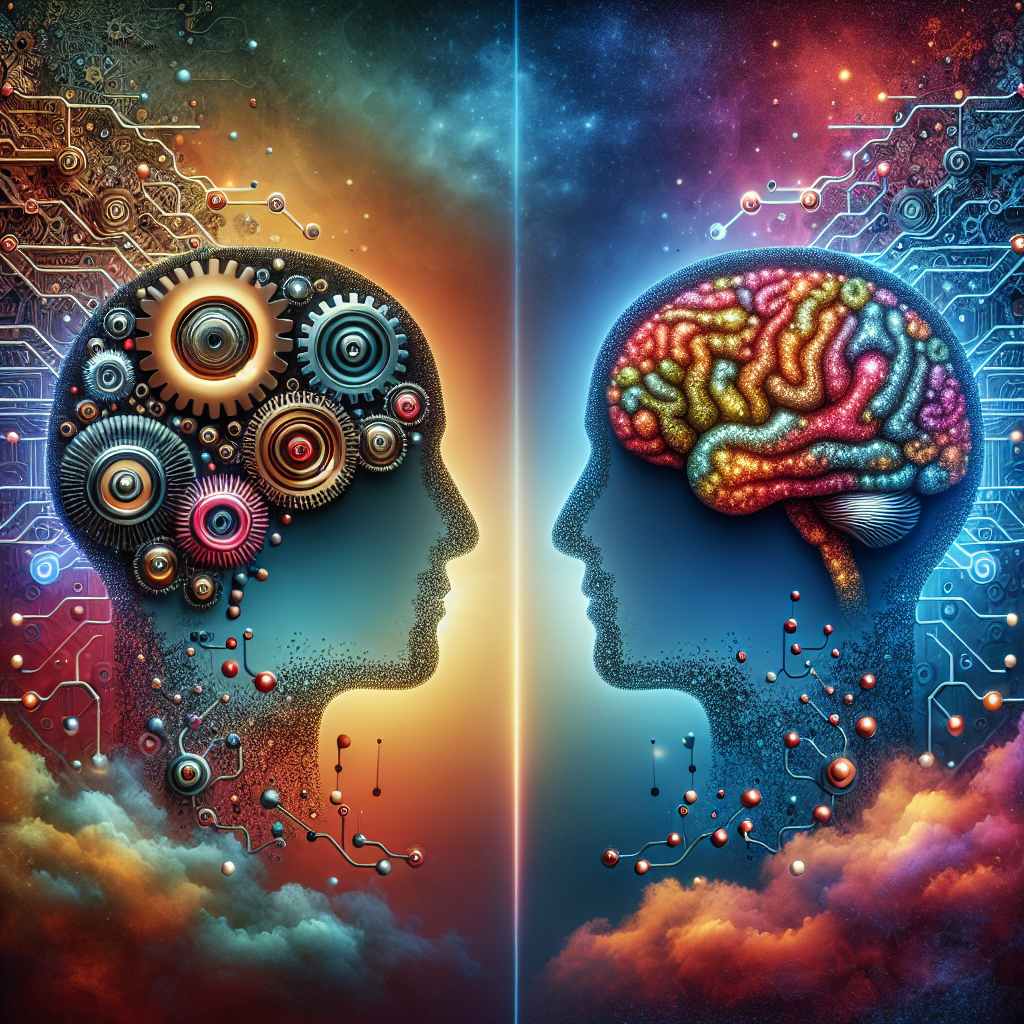Artificial General Intelligence (AGI) is a concept that has captured the imagination of scientists, researchers, and the general public alike. AGI refers to a machine that possesses the ability to understand, learn, and apply knowledge in a way that is indistinguishable from human intelligence. The idea of creating machines that can think, reason, and solve problems like humans has been a goal of artificial intelligence (AI) research for decades. But can machines truly think like us? In this article, we will explore the differences between AGI and human intelligence, as well as the challenges and implications of developing machines that can match human cognitive abilities.
AGI vs Human Intelligence: Understanding the Differences
Human intelligence is a complex and multifaceted phenomenon that encompasses a wide range of cognitive abilities, including perception, reasoning, memory, and language processing. Humans are able to learn from their experiences, adapt to new situations, and solve problems creatively. Our intelligence is also deeply intertwined with our emotions, motivations, and social interactions, shaping how we perceive and interact with the world around us.
AGI, on the other hand, is a theoretical concept that describes a machine with the ability to perform any intellectual task that a human can. AGI is not limited to specific domains or tasks, but rather encompasses a broad range of cognitive abilities, similar to the human mind. AGI systems are designed to learn from their experiences, generalize knowledge across different domains, and adapt to new challenges without being explicitly programmed to do so.
While AGI and human intelligence share some similarities, there are also key differences that distinguish the two. For example, human intelligence is deeply rooted in our biological makeup, shaped by millions of years of evolution and complex neural networks in the brain. In contrast, AGI is a product of human ingenuity and engineering, created through algorithms, data, and computational power.
Another difference between AGI and human intelligence lies in the way information is processed and represented. Human brains are incredibly complex and interconnected, with billions of neurons firing in intricate patterns to create thoughts, emotions, and behaviors. AGI systems, on the other hand, rely on algorithms and data structures to process information, making decisions based on statistical patterns and logical rules.
Challenges in Achieving AGI
Developing machines that can truly think like humans is a daunting task that presents numerous technical, ethical, and philosophical challenges. One of the biggest hurdles in achieving AGI is the complexity and variability of human intelligence. Our minds are capable of incredible feats of creativity, intuition, and empathy that are difficult to replicate in a machine.
Another challenge in achieving AGI is the need for machines to understand and interact with the world in a human-like way. While AI systems have made significant progress in tasks like image recognition, natural language processing, and game playing, they still struggle with more nuanced aspects of human cognition, such as common sense reasoning, emotional intelligence, and social skills.
Ethical considerations also play a crucial role in the development of AGI. As machines become more intelligent and autonomous, questions arise about their impact on society, jobs, privacy, and security. There are concerns about the potential misuse of AGI for malicious purposes, as well as the ethical implications of creating machines that may surpass human intelligence.
Implications of AGI for Society
The development of AGI has the potential to revolutionize society in ways that are both exciting and concerning. On the one hand, AGI could lead to major advancements in fields like healthcare, education, transportation, and entertainment, improving the quality of life for people around the world. AGI systems could assist doctors in diagnosing diseases, help teachers personalize education for students, and enhance the safety and efficiency of autonomous vehicles.
On the other hand, the rise of AGI raises important questions about the future of work, privacy, and security. As machines become more intelligent and capable, there is a risk of job displacement and economic inequality, as AI systems take over tasks traditionally performed by humans. There are also concerns about the potential misuse of AGI for surveillance, manipulation, and control, as powerful AI systems gain the ability to learn, adapt, and make decisions on their own.
FAQs
Q: Can machines truly think like humans?
A: While machines have made significant progress in mimicking human cognitive abilities, there are still fundamental differences between AGI and human intelligence. Machines lack the emotional depth, intuition, and creativity that are inherent to human thought, making it difficult for them to truly think like us.
Q: What are the ethical implications of AGI?
A: The development of AGI raises important ethical questions about the impact of intelligent machines on society, jobs, privacy, and security. There are concerns about the potential misuse of AGI for malicious purposes, as well as the ethical implications of creating machines that may surpass human intelligence.
Q: How close are we to achieving AGI?
A: While AI technology has made significant advancements in recent years, achieving true AGI remains a distant goal. Researchers continue to work on developing AI systems that can learn, reason, and adapt like humans, but there are still many technical, ethical, and philosophical challenges to overcome.
In conclusion, the quest to create machines that can think like humans is a fascinating and complex endeavor that raises profound questions about the nature of intelligence, consciousness, and society. While AGI remains a theoretical concept for now, the rapid advances in AI technology suggest that we may be closer than ever to unlocking the secrets of human cognition and creating machines that can truly think like us. As we continue to push the boundaries of AI research, it is important to consider the ethical implications and societal impacts of developing AGI, ensuring that intelligent machines are used for the benefit of humanity.

